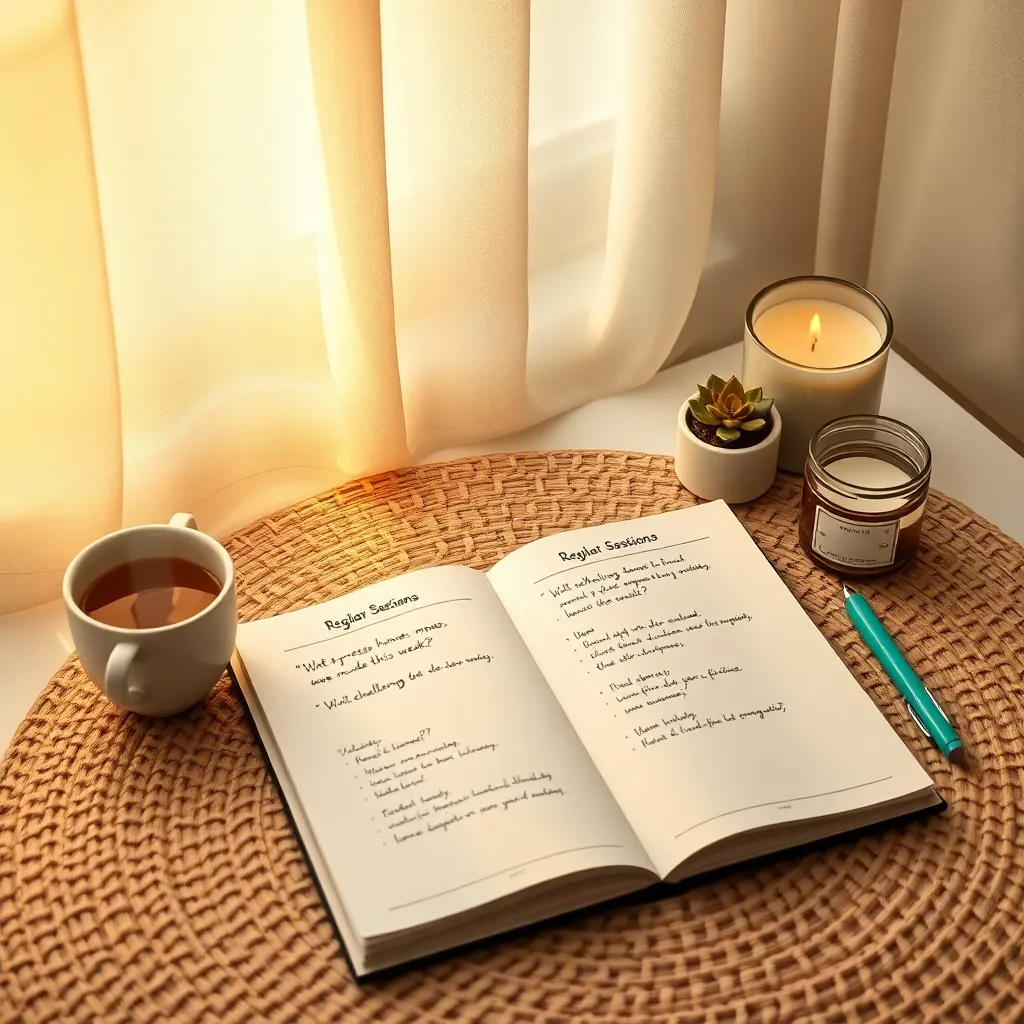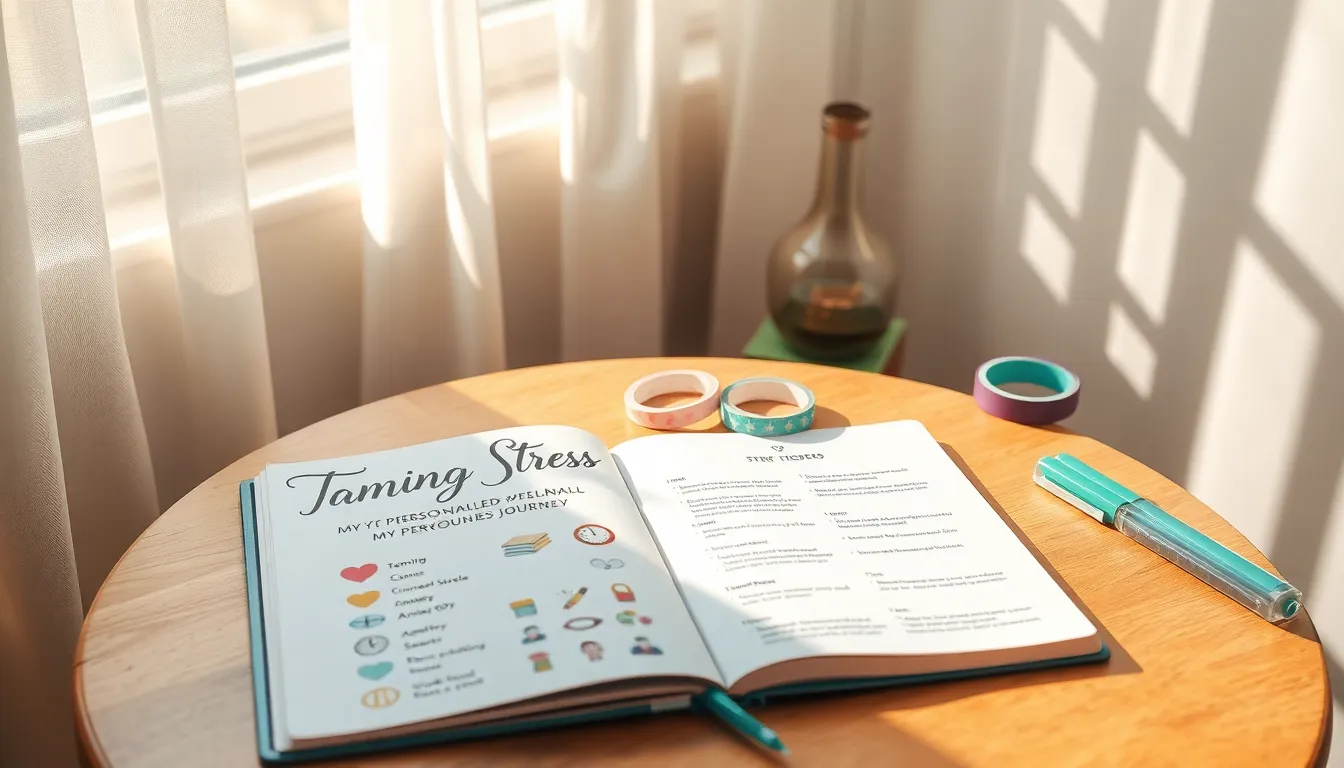In the whirlwind of daily life, stress can feel overwhelming. Journaling offers a gentle escape, allowing your thoughts a safe space to breathe and transform chaos into clarity.
As you explore this guide, you’ll discover simple techniques to turn your journal into a powerful stress-relief tool, nurturing both mind and soul. Let’s begin this calming journey together.
Select a Quiet Writing Space

Consider choosing a quiet, comfortable corner to enhance focus and relaxation. This peaceful setting helps you connect deeply with your thoughts, reducing stress.
In this space, try prompts like:
- “What can I let go of today?”
- “What brings me peace?”
These guide reflection and promote calming insights, fostering a deeper sense of well-being.
Identify Stress Triggers in Writing

Reflect on moments when you felt overwhelmed. Ask yourself: What situations or thoughts triggered stress? Identifying patterns helps in understanding your stressors better.
Use prompts like:
- “Today, I felt stressed when…”
- “I noticed my stress levels rise because…”
These encourage deep reflection, aiding in stress management.
Reflect on Daily Experiences

Begin by setting aside a few minutes each evening to reflect on your day. Capture moments that stood out, both positive and challenging. This daily practice helps you gain clarity and process emotions effectively.
Use prompts like:
- “What were today’s highlights?”
- “What did I learn about myself?”
These questions encourage deeper reflection and can reduce stress by fostering self-awareness and growth.
Incorporate Gratitude Entries

Start a gratitude entry by jotting down three things you’re thankful for each day. This simple act can shift your mindset towards positivity and reduce stress.
Use prompts like:
- What made you smile today?
- Who are you grateful for and why?
Regularly practicing gratitude rewires your brain to seek joy.
Set Regular Review Sessions

Regular review sessions can transform your journaling practice. Set aside time weekly to reflect on past entries. This helps identify stress patterns and progress.
Try prompts like: “What stressed me this week?” or “How did I handle stress effectively?” Use insights to refine coping strategies and celebrate small victories.
Conclusion: Creating Beautiful Outdoor Spaces
Incorporating journaling into your stress management routine can significantly enhance your relationships by fostering clarity and emotional resilience. First, we discussed how journaling aids in understanding and expressing emotions, which is essential for healthy communication. Next, we explored setting relationship goals through journaling, providing a roadmap for personal and mutual growth. Third, we highlighted the importance of reflecting on past interactions to learn and improve future engagements. Additionally, we emphasized the value of gratitude journaling in nurturing appreciation and positivity in relationships. Finally, we touched upon the power of daily affirmations to build self-esteem and strengthen relational bonds.
Now, take the first step: dedicate just five minutes today to jot down your thoughts or feelings about a recent interaction. This small action can pave the way for greater emotional awareness and connection. Remember, your journey toward relationship success is ongoing. Save this article so you can revisit these techniques and continue to refine your approach. Embrace the power of journaling as a tool for stress management, and watch as your relationships flourish, leading to a more harmonious and fulfilling life. Bookmark this page now, and let it be your guide to thriving connections and enduring happiness.

